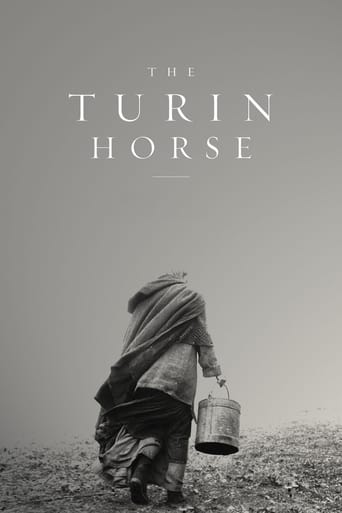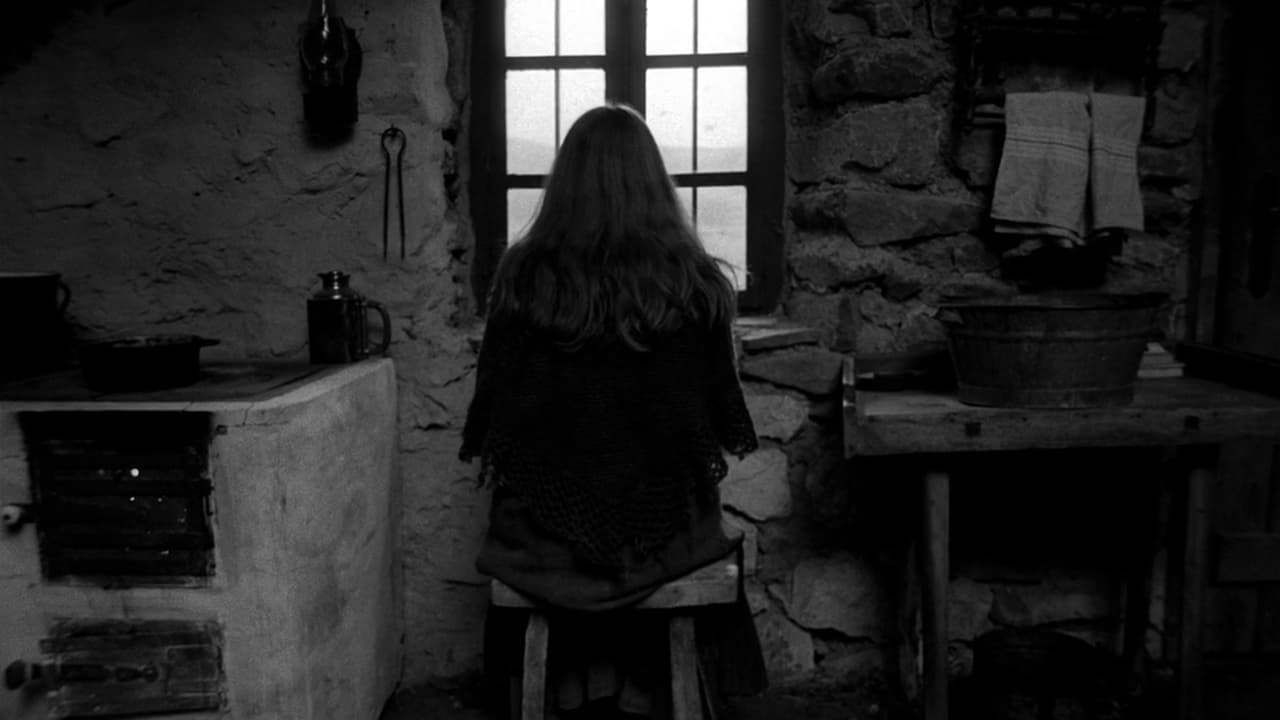Andres-Camara
The movie begins with a plane of a horse pulling a cart that lasts four minutes twenty seconds, The amount of things that must count! No, it does not count anything that has not been counted in the first five seconds and would be long.This type of films that, because some critics say, have to go to the history of cinema, I hope they never get to do it. Because the truth is that history, the film has little.I would give just as much as thirty planes or five hundred, the problem is that the planes tell nothing. Once you have counted the first day, the rest is repeated. If he had done a short, surely it would have been the short of his life, but it is that each thing has its own.That obsession with making plans sequences in which the camera moves alone, without following anything, to tell anything, there are times when it leaves things totally dark or flat and you do not see what happens, if anything happens.We would say that the actors are fine, if they are great, the truth is that they are very well, and they get to do their role for two and a half hours, only their role does not have much to say.The photograph is beautiful, it gets you into that world, but in a few minutes you are bored.I do not think this movie is a movie, I would say that it does not reach a movie
Jugu Abraham
My initial reaction to the film is "here is a black and white movie, well made, sombre in spirit that takes off from the event that led to Nietzsche's eventual death." The famous nihilist, Nietzsche, who once studied to be a monk and then denounced the existence of God, ultimately went mad after he saw a horse being brutalized by a horse- cart owner when the horse stubbornly refused to pull the cart. This movie "The Turin Horse" is all about stubborn lives as well in a stubborn world.The wind blows relentlessly in a barren spot in Hungary. A partly paralyzed father and his daughter live in a house built of stones and tiles far away from any living soul with an aging horse.Director Tarr builds up a highly unreal story. The duo survives day after day on potatoes, possibly grown on the farm and some distilled liquor, possibly homemade. They live on water from a well that dries up. Could anyone live on potatoes, water and liquor for days on end?They do not appear to have a survival instinct or worry about their future. The stubborn horse refuses to eat, and kind daughter follows the horse's actions--by refusing to eat. Even lamps full of oil refuse to light up. How the daughter and horse are similar visually towards the end is remarkably achieved by Tarr and his team.The music and camera-work are laudable. So are the performances of humans and animals. The nihilism is all pervasive. It contaminates the viewer, for no logical reason. Tarr has misplaced talent similar to Miklos Jansco, whom I have interviewed 33 years ago. I love many Hungarian films--especially those of Zoltan Fabri (whom I had interviewed as well) and Istvan Szabo-- that are world class. Yet despite the high class production details, I cannot relate with the two Tarr films I have seen thus far--this one and "Werckmeister Harmonies."
Sindre Kaspersen
Hungarian screenwriter, producer and director Béla Tarr's ninth feature film which he co-directed with Hungarian film editor Ágnes Hranitzky and co-wrote with Hungarian writer László Krasznahorkai, premiered In competition at the 61st Berlin International Film Festival in 2011, was screened in the Masters section at the 36th Toronto International Film Festival in 2011, was shot on location in Hungary and is a Hungarian production which was produced by Hungarian producer Gábor Téni, French producers Marie Pierre Macia and Juliette Lepoutre, Swiss producer Ruth Waldburger and German producer Martin Hagemann. It tells the story about a middle-aged horse owner named Ohlsdorfer who lives in a house on a farm nearby a town in Turin, Italy with his daughter and a horse. A few days after having been stopped in the nearby town by Friedrich Nietzsche where he was whipping his horse because it didn't want to move, a windstorm bursts up and the man's horse becomes increasingly resistant and will neither move nor eat. Distinctly and precisely directed by Hungarian filmmaker Béla Tarr, this quietly paced fictional tale which is narrated mostly from the two main characters' viewpoints, draws a dense and ritualistic portrayal of six days in the lives of a father who mostly sits on a chair looking out of a window and his daughter who assists him getting dressed, goes to their well every single day and makes them dinner. While notable for its distinct and atmospheric milieu depictions, sterling and low-keyed cinematography by German cinematographer Fred Kelemen, production design, costume design by costume designer Breckl János and use of sound, colors and light, this narrative-driven story about human existence where two isolated people who are living a repetitive lifestyle and who have been living together for many years are waiting for the weather and their horse to become better, depicts three interrelated and internal studies of character and contains a poignant and timely score by Hungarian composer Mihály Vig. This observational, austere and poetic drama triangle which is set in Italy during a spring in the late 19th century and where the similarities between two human beings and a horse becomes more and more apparent, their lives more and more challenging and hope increasingly intangible as the wind grows stronger and stronger, is impelled and reinforced by its stringent narrative structure, subtle character development, rhythmic continuity, distinct atmosphere, silent and contemplating characters, long and philosophical speech, describing voice-over narration, dark and mysterious undertones, the internally and externally expressionistic acting performances by Hungarian actor János Derzsi and Hungarian actress Erika Bók and the fine acting performance by Hungarian actor Mihály Kormos. An existentialistic, cinematographic and majestic statement from an accomplished auteur filmmaker which gained, among other awards, the Grand Jury Prize at the 61st Berlin Film Festival in 2011.
hany_nouh
I found this film is good, it's makes me thank god Now there is one laughing mistake The door of the poor house have a modern lock With face plate, latch, dead loch, "modern" lever handle and cylinder. The lock is not fitted with the very poor door and house it's strange scene in the middle of that all miserable live in all during the movieThere is a big question about why's the father and daughter return to their home although the changed what is happened. Is that the wisdom of dying in the land of grandfathers, and so whatever. I cannot touch the relation between Nietzsche story and a battle to survive in very hard and poor condition


 AD
AD

